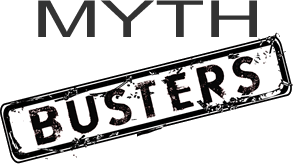Myth: You should not go swimming immediately after eating.
 This is a common myth that has been around for years. It started with the belief that a full stomach could cause muscle cramps while you're swimming, and that could lead to drowning.
This is a common myth that has been around for years. It started with the belief that a full stomach could cause muscle cramps while you're swimming, and that could lead to drowning.
It may be good advice, depending on what types of foods you've eaten or how much. But if muscle cramps occur while you're swimming, the cause is likely unrelated to a full stomach.
"When your body is digesting food, this doesn't mean all its energy and blood is concentrated on that effort," said Family Medicine Physician Maria Alvarez, M.D., Marshfield Clinic Minocqua Center. "Your body still has plenty of energy and blood to digest your food and keep your arms and legs moving, too."
Cramping is related to fatigue, Dr. Alvarez said. "You could get a cramp without having eaten anything. The fatigue may be related to improper hydration and an electrolyte imbalance."
What you eat and drink can make a difference, particularly if you're swimming for competition, as opposed to leisure or recreational swimming.
"Two to three hours before exercise it's advisable to eat a meal that combines naturally-occurring simple and complex carbohydrates such as fruits and vegetables, with protein-rich foods, to give you the energy you'll need to have and sustain," Dr. Alvarez said. "If you're a competitive swimmer, you're probably conditioned to eating a larger meal before swimming. If you aren't, you may experience stomach discomfort or even nausea, but it probably won't lead to drowning."
Consuming alcoholic beverages before swimming isn't a good idea. Alcohol can severely impair your judgment and physical condition, leading to risky behavior in the water and on land.
"Consuming alcohol increases the risk of developing a vocal cord spasm if water enters your windpipe while you're swimming," Dr. Alvarez said. "This can block the airway and potentially lead to drowning. Alcohol and swimming don't mix."
